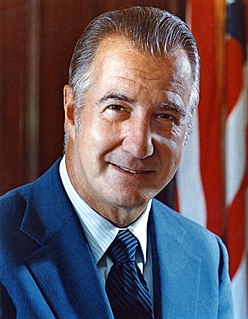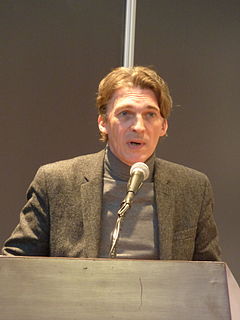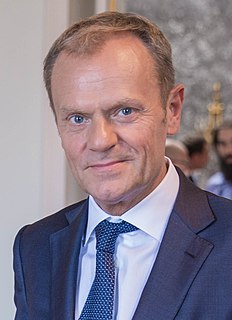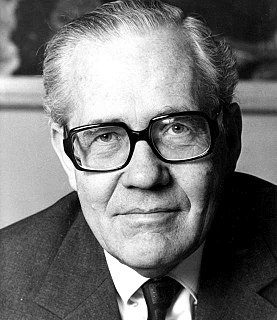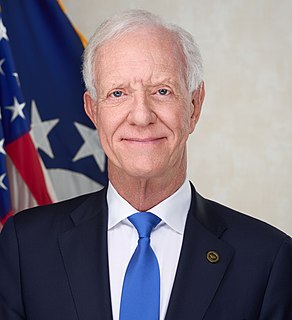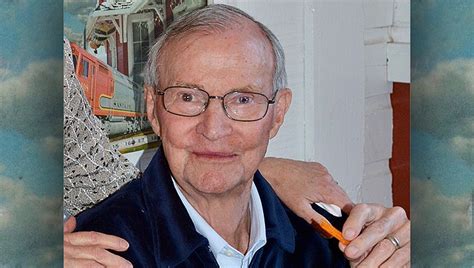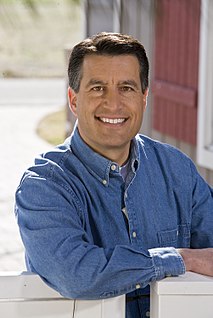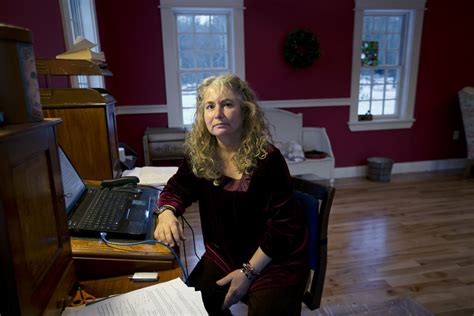Top 475 Crises Quotes & Sayings - Page 7
Explore popular Crises quotes.
Last updated on November 8, 2024.
We must work to repeal trade agreements that impede access to affordable generic drugs. We must work to cause the IMF and the World Bank to reduce and eventually eliminate the debt that takes poor nations' resources away from crises like AIDS. We must focus America's leadership on addressing and ending this epidemic.
So is civil society prepared for the future? Probably not. Most organisations have to live hand to mouth, juggling short-term funding and perpetual minor crises. Even the bigger ones rarely get much time to stand back and look at the bigger picture. Many are on a treadmill chasing after contracts and new funding.
We must alert and organise the world's people to pressure world leaders to take specific steps to solve the two root causes of our environmental crises - exploding population growth and wasteful consumption of irreplaceable resources. Overconsumption and overpopulation underlie every environmental problem we face today.
There are many major crises facing our country. At the top of the list is the need to overturn Citizens United. If billionaires are able to buy elections and elect right-wing candidates, there is no way we will ever address climate change, college education, affordability, job creation, raising the minimum wage and taking on Wall Street.
When I looked at 'Dear White People,' you have four African-American students who are all very different and who are trying to figure out who they are. They're dealing with identity issues and crises. That is exciting to me, to see African-American young people on a page, on a screen, who are so diverse and whose stories are all so different.
Through dance, people meet demons, ward off death, shake off sin and evil, come to terms with life crises, mediate paradoxes, resolve conflict, revitalize the past to re-create the present, enhance their self-concept and body image, attract attention, assert themselves, confront the strong, and persuade others to change their ways.
I have a range of scenarios. One of them is a chaos, that what could happen is Congress does step up a little bit and the administration is paralyzed. And we go through all kinds of constitutional crises, impeachment or the 25th Amendment removal process. Another frightening scenario is Donald Trump is steering his way to a series of international confrontations at the same time as he's appeasing Russia.
The self divided is precisely where the self is authentically located. . . We all have identity crises because a single identity is a delusion of the monotheistic mind. . . Authenticity is in the illusion, playing it, seeing through it from within as we play it, like an actor who sees through his mask and can only see in this way.
One of my first priorities as a new member of Congress in 2019 was to visit the CDC and learn firsthand about what they needed to help protect Americans. After my visit, I learned their budget had previously been cut, and that they needed funding to modernize their data systems to help prevent pandemics and other public health crises.
All the more reason we need to stand up for our democracy now. If we're going to solve the crises that are barreling down on us, we need democracy, and our democracy needs to start with an open and inclusive debate. That doesn't mean 20 candidates. There are four candidates who are on the ballot for just about every voter in America.
If the Nation is living within its income, its credit is good. If, in some crises, it lives beyond its income for a year or two, it can usually borrow temporarily at reasonable rates. But if, like a spendthrift, it throws discretion to the winds, and is willing to make no sacrifice at all in spending; if it extends its taxing to the limit of the peoples power to pay and continues to pile up deficits, then it is on the road to bankruptcy.
Bad news drives out good news. The irrational is more controversial than the rational. Concurrence can no longer compete with dissent. One minute of Eldridge Cleaver is worth ten minutes of Roy Wilkins. The labor crises settled at the negotiating table is nothing compared to the confrontation that results in a strike ... normality has become the nemesis of network news.
I have no doubt that there will continue to be bumps, some serious crises indeed in our relationship with China.... Neither membership in the WTO nor normalized trade relations with the United States will magically impose the rule of law on China or institute deep-seeded respect for human rights. But it certainly has potential to advance those purposes.
There is no doubt in my mind that as central banks begin to abandon the dollar, there will be an enormous amount of monetary demand for silver and the silver ratio will plummet. If you look at all of the monetary crises over the last 100 years, any time that there has been even a whiff of a collapse of the dollar, the silver ratio has soared.
Absent geopolitical crises, the role of government policy isn't as big as people think in the short run. In the immediate term, the potential to ignite an escalating trade war without really intending to ought to be high on our list of US dangers as should dangers of popping credit bubbles either internationally or here at home.
With climate change and health crises rightfully receiving international attention, the time has come to focus on hunger as a top priority. WHO regards hunger and malnutrition as the gravest threat to public health, and climate change threatens to further destabilise already fragile food-production systems.
Altermodern is an in-progress redefinition of modernity in the era of globalisation, stressing the experience of wandering in time, space and mediums. The term 'altermodern has its roots in the idea of 'other-ness (Latin alter = 'other, with English connotation of 'different) and suggests a multitude of possibilities, of alternatives to a single route. It suggests that the historical period defined by postmodernism is coming to an end, symbolised by global financial crises.
I believe that in the history of art and of thought there has always been at every living moment of culture a will to renewal. This is not the prerogative of the last decade only. All history is nothing but a succession of crises - of rupture, repudiation and resistance. When there is no crisis, there is stagnation, petrifaction and death. All thought, all art is aggressive.
One of the really key things to look at in terms of crafting strategy when you're in an economic crises is how do you maximize essentially your liquidity position? Your ability to both take kind of profits and revenues and business and then convert that into a stronger lead. And so those companies that can do that can actually, you know, get a march on their competitors.
Capitalism’s real “grave-diggers” may end up being its own delusional Cardinals, who have turned ideology into faith. Despite their strategic brilliance, they seem to have trouble grasping a simple fact: Capitalism is destroying the planet. The two old tricks that dug it out of past crises-War and Shopping-simply will not work.
Fatalism, whose solving word in all crises of behavior is All striving is vain, will never reign supreme, for the impulse to take life strivingly is indestructible in the race. Moral creeds which speak to that impulse will be widely successful in spite of inconsistency, vagueness, and shadowy determination of expectancy. Man needs a rule for his will, and will invent one if one be not given him.
We talk of regional conflicts, of economic and social crises, of political instability, of abuses of human rights, of racism, religious intolerance, inequalities between rich and poor, hunger, over-population, under-development and. I could go on and on. Each and every one of these impediments to humanity's pursuit of well-being are also among the root causes of refugee problems.
Perhaps the most powerful lesson other brands can learn from Nike is the need to act in accordance with the reality of the world we live in. In a mutually dependant, intimately connected global community facing several major crises, brands need to operate with an expanded definition of self-interest that includes the greater good.
Having a plan enabled us to keep our hope alive. Perhaps in a similar fashion, people who are in their own personal crises - a pink slip, a foreclosure - can be reminded that no matter how dire the circumstance, or how little time you have to deal with it, further action is always possible. There's always a way out of even the tightest spot.
The cost of our success is the exhaustion of natural resources, leading to energy crises, climate change, pollution, and the destruction of our habitat. If you exhaust natural resources, there will be nothing left for your children. If we continue in the same direction, humankind is headed for some frightful ordeals, if not extinction.
The history of religions reaches down and makes contact with that which is essentially human: the relation of man to the sacred. The history of religions can play an extremely important role in the crisis we are living through. The crises of modern man are to a large extent religious ones, insofar as they are an awakening of his awareness to an absence of meaning.
It is a myth that alcoholics have some spontaneous insight and then seek treatment. Victims of this disease do not submit to treatment out of spontaneous insight - typically, in our experience they come to their recognition scenes through a buildup of crises that crash through their almost impenetrable defense systems. They are forced to seek help; and when they don't, they perish miserably.
I was elected to solve problems, and I don't think it's conservative to have bad roads; I don't think it's conservative to have bad schools. I don't think it's conservative to have to go through budget crises every two years. So I'm taking the difficult issues straight on. That's what I was elected to do.
Glyphosate is only one of more than 80,000 registered commercially produced chemicals in the U.S. Some of these compounds, such as PFOA and the one I made my name investigating, hexavalent chromium, have also been convincingly linked to health crises - testicular cancer in the case of PFOA and lung cancer in the case of chromium-6.
I have been fortunate to work in places where people have a passion for their work. At HHS the passion sort of exceeds passion - it's a vocation.... I obviously knew that there were certainly some challenges that I would be taking on both with the work and the politics. [But] I probably did not have the right expectation level with regard to the number and volume of crises that would occur.
Real change doesn't come without crisis. Childbirth doesn't come without crisis. I think that's happening with humanity now. Our growth has generated multiple crises...and these are the contractions that are propelling us into a new world, whether we like it or not, but I think we're going to like it.
Addressing the climate and biodiversity crises requires us to radically change our economic models, moving away from economic growth as the over-riding measure of progress and moving instead towards improving health and wellbeing for people and nature. That means a different economic model taking us towards a sustainable economy.
What we need to wake people up to now is the crisis in imagination and concern for the greater good. We have no idea what the next ten years, much less the next fifty years, will demand of the coming generation. What we do know is that unless we have a people prepared and eager to meet those crises creatively and compassionately, there is not much hope for this poor old planet of ours.
What I am concerned about in this fast-moving world in a time of crises, both in foreign and domestic affairs, is not so much a program as a spirit of approach, not so much a mind as a heart. A program lives today and dies tomorrow. A mind, if it be open, may change with each new day, but the spirit and the heart are as unchanging as the tides.
In a world of serious threats to the U.K. and to global stability, where we see violence and conflict pulling people back into poverty, international terrorism, migration crises, children dying from preventable diseases and global environmental concerns on the rise, Britain's leadership on the world stage is more important than ever.
Natural disasters like Hurricane Harvey are the worst kind of crises for people like Mr. Trump and Mr. Osteen, who purvey their own versions of the prosperity gospel. This is a belief that says if you think positively and make affirmations, God will reward you with financial success and good health.
The unphilosophical majority among men are the ones most helplessly dependent on their era's dominant ideas. In times of crises these men need the guidance of some kind of theory; but, being unfamiliar with the field of ideas, they do not know that alternatives to the popular theories are possible. They know only what they have always been taught.
The humanitarian aid system is built on a concept that when disaster strikes, outside agencies provide a temporary helping hand until people can take back control of their own lives. But across the world, we see millions of people caught in semi-permanent crises. As each year goes by, they are less and less likely to break free.
Are psychiatric crises so overwhelming to the mind that they inhibit the presence of ethics? Is depression at root an amoral phenomenon, its focus on the self preventing any other from really counting? Perhaps. Sometimes. Sometimes, even when we are two we are really only one; we can feel nothing but our own bones, our own difficult breaths.
The new shift in thinking is the gateway to human transformation. And because of the sheer number of people involved in this shift, and the growing magnitude of the crises that are driving us to change the way we think, we are standing on the threshold of human transformation at a level unlike anything ever before known on Earth.
By means of the banking system the distribution of capital as a special business, a social function, is taken out of the hands of the private capitalists and usurers. But at the same time, banking and credit become the most effective means of driving captialist production beyond its own limits and one of the most effective vehicles of crises and swindle.
Make no mistake, our military readiness is already suffering. According to a recent RAND study, the Army has been stretched so thin that active-duty soldiers are now spending one of every two years abroad, leaving little of the Army left in any appropriate condition to respond to crises that may emerge elsewhere in the world.
In every crisis, if you look carefully, you will spot an opportunity. My insistence is on finding and seizing that opportunity. I never try to side-step a crisis. Rather, the more monstrous the crises, the more I am tempted to rush at it, grasp it by the horns and man-oeuvre it until it gives me what I want
In The 3rd Alternative, Stephen Covey urges us to chart a course beyond the suboptimal solutions to all our crises - beyond left and right, and beyond the many false choices in front of us. The 3rdAlternative is a wise and welcome echo of Einstein's warning that the problems we're facing today cannot be solved by the same level of thinking that created them.
When confronting most crises, whether historic or contemporary, aid agencies generally muddle along on a case-by-case basis. They weigh insufficient information, extrapolate somewhat blindly about long-term pros and cons, and reluctantly arrive at decisions meant to do the most good and the least harm.
When I wrote my first book, Crisis Management: Planning for the Inevitable, it was endorsed by the American Management Association, and consequently was read by America's top corporate leaders, and overnight put me in high demand as a consultant and as a speaker. Also, that book forever changed the way businesses look at and deal with crises by giving a tangible feel to an otherwise intangible subject.
Obama invented himself against all odds and repeated parental abandonment, and he worked hard to regiment his emotions. But now that can come across as imperviousness and inflexibility. He wants to run the agenda; he doesn't want the agenda to run him. Once you become president, though, there's no way to predict what your crises will be.
If you look at the developments in the international scene over the past many years, we haven't been able to resolve many problems and many crises, because we have approached them from a zero-sum perspective. My gain has always been defined as somebody else's loss, and through that, we never resolve problems.
















